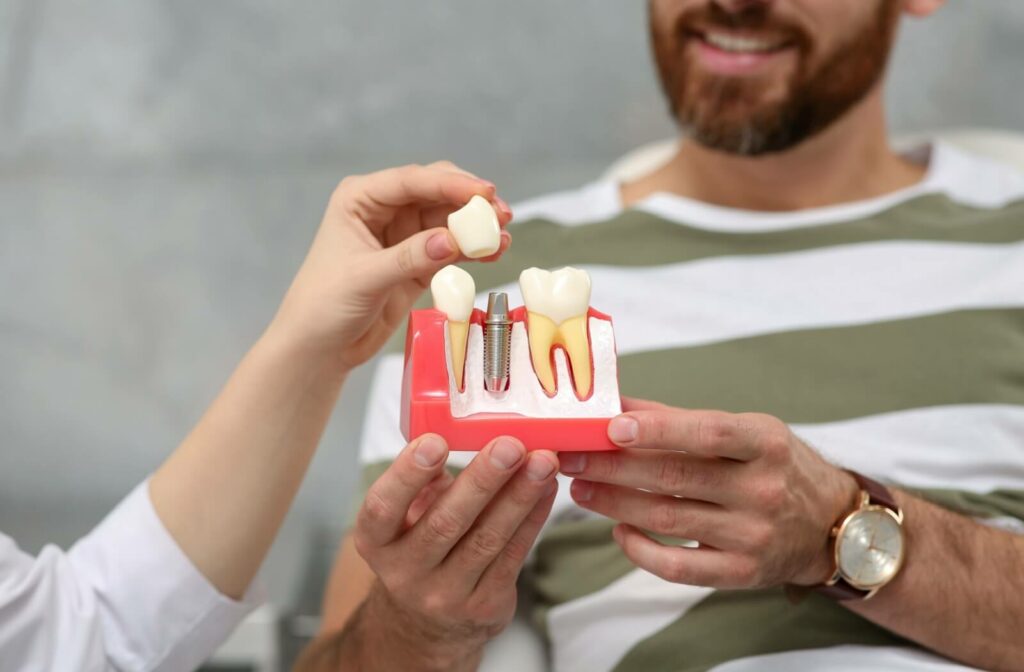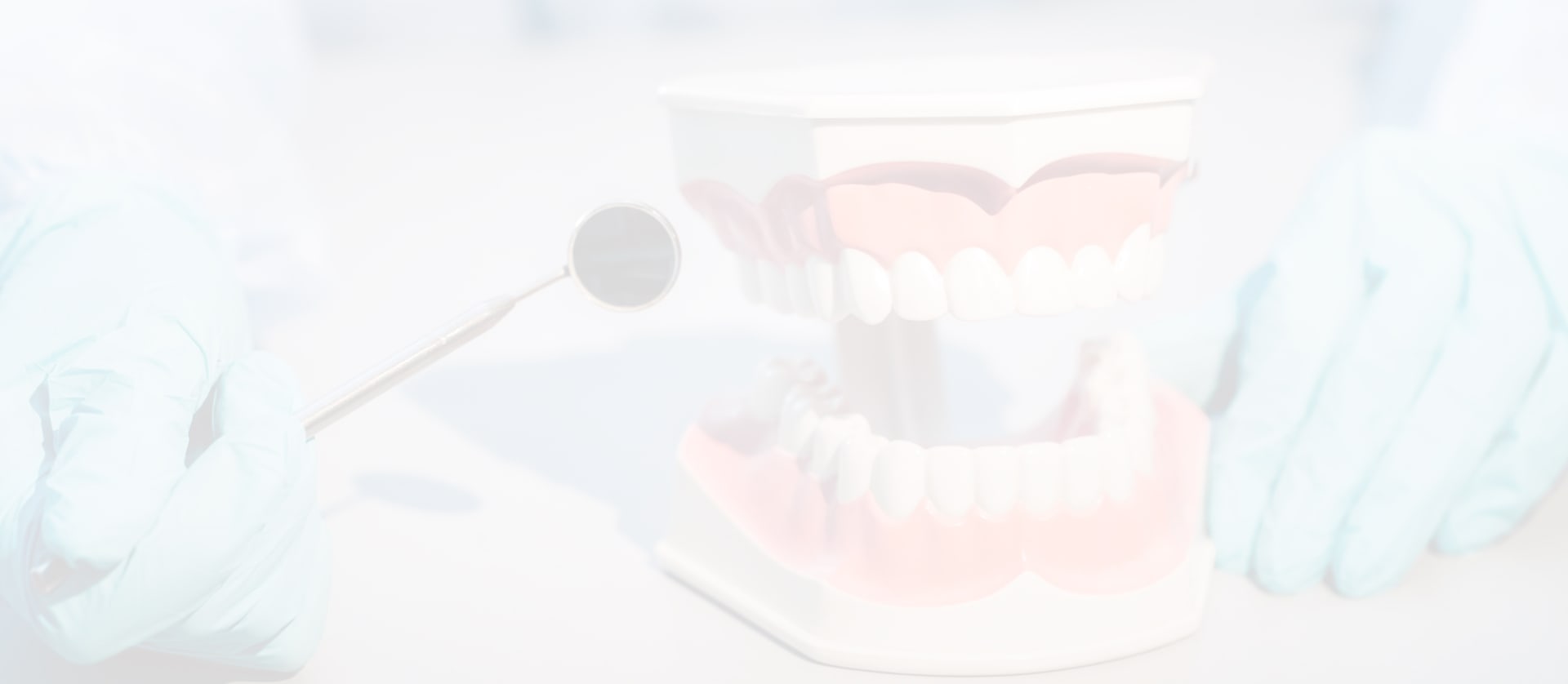Tooth or dental implants have transformed dental care for countless individuals, offering a long-term solution to tooth loss and a way to restore both function and smile aesthetics. Like any dental procedure, they require diligent care to make them last. But can a dental implant fall out?
Since dental implants go in the jawbone, they’re unlikely to fall out. However, the replacement tooth or crown on the implant may become loose. If this happens, call your dentist immediately to assess the situation.
What Is a Dental Implant?
A dental implant is a device designed to replace missing teeth. It consists of a titanium post surgically inserted into the jawbone that serves as an artificial root.
During your first dental appointment, your dentist will place the post into your jawbone beneath the gum tissue. This post fuses with the bone during the healing process and is called osseointegration.
After healing, the next appointment involves placing an abutment to the implant. This post connects the replacement tooth to the implant. A crown or dental bridge is then attached to the abutment, mimicking the appearance and function of natural teeth.
Some common reasons why people opt for dental implants include:
- Missing teeth: Whether due to trauma, tooth decay, or another reason for the tooth loss, dental implants offer a permanent solution to replace missing teeth.
- Improved function: Dental implants act like natural teeth, allowing you to eat and speak.
- Long-term solution: Unlike removable dentures or bridges that may need frequent replacement, dental implants can last a long time with proper care.
- Aesthetics: Replacement teeth on a dental implant are custom-made to match the colour and shape of your natural teeth, restoring your smile’s appearance.
Dental implants are suitable for most people with missing teeth, as long as they have healthy jawbone and gums. Age is not a limiting factor, as long as the person is in good overall health and has no medical conditions that may affect healing. Your dentist can assess your specific situation to determine if dental implants are the right option for you.
Can Tooth Implants Fall Out?
Dental implants are a permanent procedure and have a high success rate. Sometimes, instead of an issue with your dental implant, it may be the replacement tooth that’s loose or needs replacing due to natural wear and tear.
Replacement teeth, such as crowns, can last 10 years or longer, and bridges can last around 10 years. In rare cases, a dental implant may fail.
Factors That Could Cause a Tooth Implant to Fall Out
Certain factors can contribute to tooth implant failure.
Peri-Implantitis
Several risk factors can lead to peri-implantitis—an inflammatory disease affecting tissues around the implant, which can jeopardize its stability. These risk factors include:
- Poor oral hygiene
- Tobacco use
- Poorly controlled systemic health conditions
- Periodontitis and treatment noncompliance
- Teeth grinding or bruxism
Insufficient Bone Support
Adequate bone density is crucial for a dental implant. Without it, the implant might not integrate properly, increasing the risk of loosening or falling out. If you don’t have sufficient jawbone to support an implant, you can have a bone graft to build up the jawbone.
Lack of Osseointegration
Failure of a dental implant to fuse with the jawbone can lead to dental implants falling out. This highlights the importance of proper healing and bone support for successful implant placement.
Steps to Prevent Tooth Implant Failure

To maintain longevity of your tooth implants, consider the following preventive measures:
- Maintain excellent oral hygiene: Brush twice daily with a soft-bristled toothbrush and floss regularly. Use interdental brushes to clean around the implant.
- Schedule regular dental visits: Routine check-ups allow your dentist to monitor the health of your implants.
- Avoid harmful habits: Refrain from smoking and excessive alcohol consumption. If you grind your teeth, seek a dental solution like a mouth guard.
- Follow dietary recommendations: Avoid hard foods that may damage your implants or supporting structures in your mouth.
Signs of Potential Implant Problems
Early detection of dental issues can prevent more serious complications. Watch for signs such as:
- Redness or swelling around the implant could indicate an infection or inflammation.
- Persistent pain or ongoing discomfort.
- Loosening of the implant or associated prosthetic tooth.
Professional Care & Maintenance for Dental Implants
Professional care is essential to make sure your dental implant remains durable. Your dentist can show you how to properly care for your implant to maintain optimal implant health and address any concerns before they escalate.
Supporting Your Oral Health
While the possibility of tooth implants falling out can be concerning, this is quite a rare occurrence. Understanding the factors that affect implant stability and taking proactive steps to reduce them can help maximize their longevity. With diligent dental care and support from your dentist, dental implants offer a reliable and durable solution for restoring oral health and function.
To find out if you’re a candidate for dental implants, book an appointment with Fairlawn Dental Centre. We can work with you to help you achieve your oral health goals.










